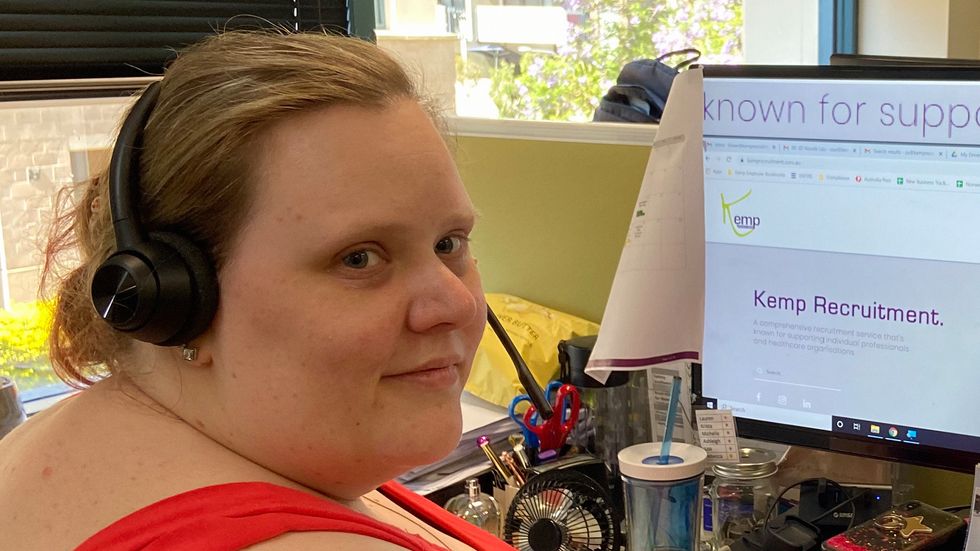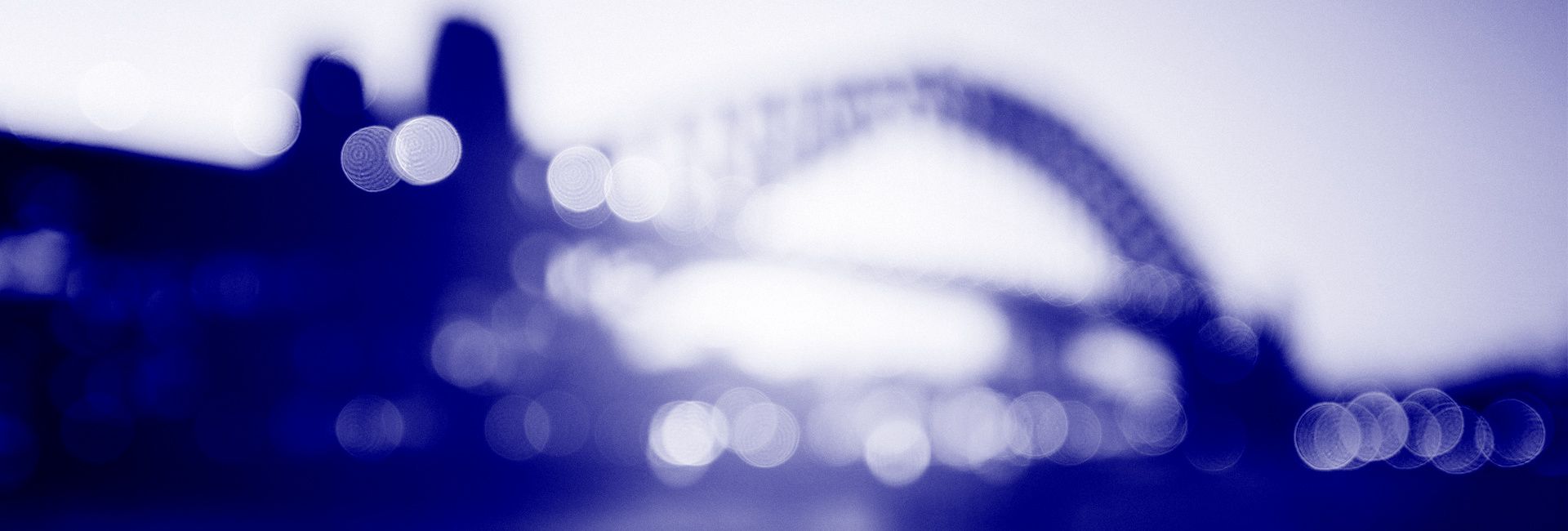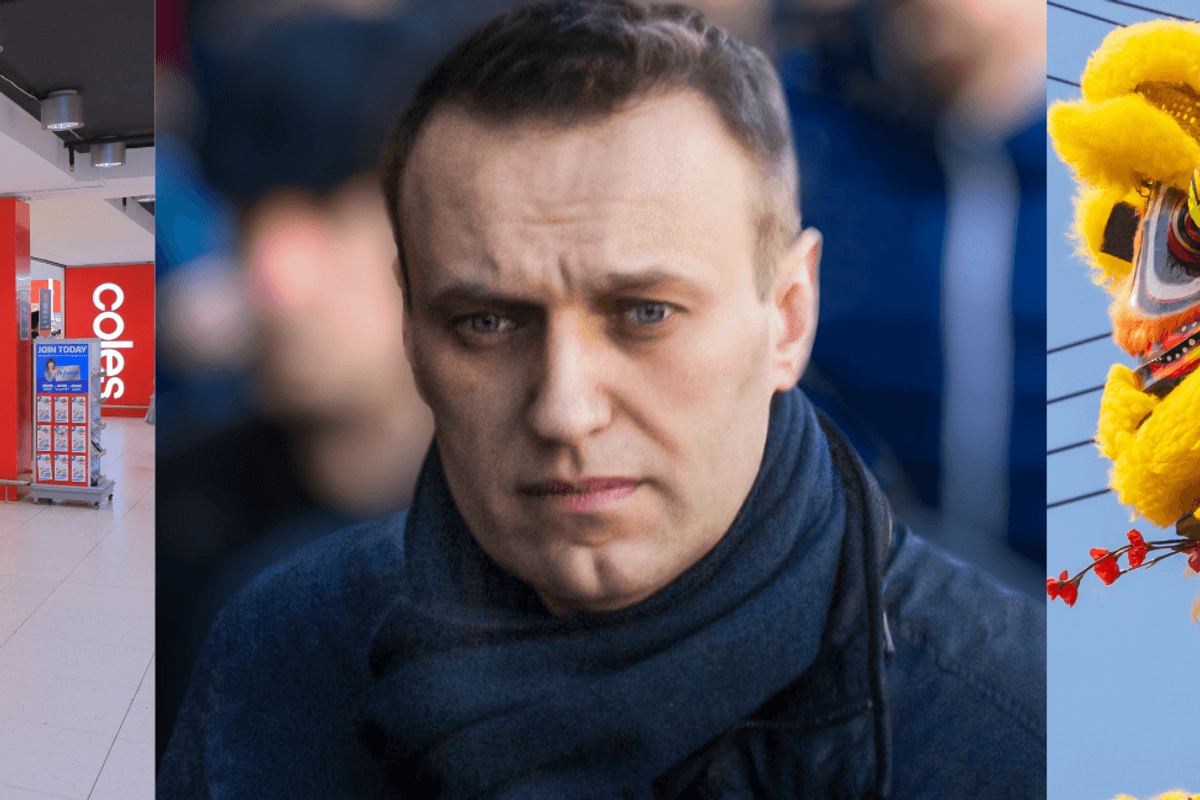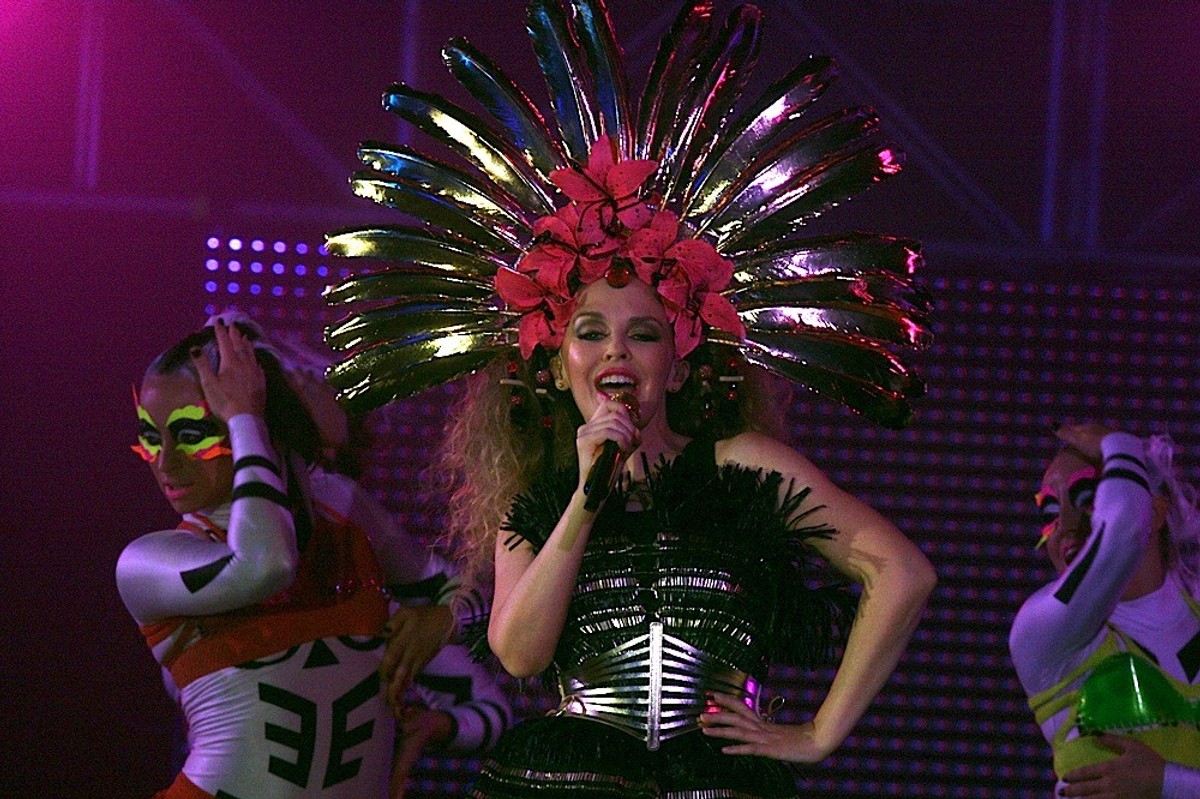Due to the stigma towards people with disabilities, for those whose disability is less obvious, it's sometimes easier to live in silence.
Krista Lowe's life is ordered perfectly. She shops at the same supermarkets, work files are colour-coded, everything has its place. To an outsider, she would be described as overly organised, but her friends and family know it's how she's adapted so she can live a semi-normal life.
Lowe is one of an estimated 4.4 million Australians living with a disability. At 22, she was diagnosed with bilateral ischemic optic neuropathy and was classified as legally blind. The condition is caused by the death of nerve cells in the eyes due to poor blood circulation which reduces the eyesight significantly.
"I prefer to call it low vision just so people have a better understanding of what I have, because I'm not 'blind', per se.
"It happened overnight," Lowe said. "I had lost the identity of who I was … I was being told that the vision was never going to come back, no matter what they did, and that it could get worse." The Australian Institute of Health and Welfare estimates one in five Australians have a disability, and of them, 90 per cent of those disabilities are invisible.
Lowe was in her second year of nursing when she was diagnosed. She has since had to change the way she lives to continue to work and live independently.
"Just coming to terms with any sort of change took me a good five years, at least," she said. "Reality has to kick in eventually, and I had to face the fact that it's not something that is ever going away and just put everything in place that I can to help.
"I found that since the vision issues started, I have become even more specific on what goes where so it makes sense and it makes my life quicker, easier, and prevents me from having as much tension headaches and eyestrain."
But Lowe often faces challenges when she needs to go somewhere new, or when the familiar changes. "It really slows my life down, and makes me uncomfortable that I have to ask people," she said. "I don't handle change well because of everything and I feel embarrassed."

Lowe's challenges are not obvious to the general public. She has continued to work and drive and while she does use a cane, her disability is largely invisible.
The Invisible Disability Association defines invisible disabilities as those not always obvious to the onlooker but can limit daily activities, range from mild challenges to severe limitations and vary from person to person. Unfortunately, the very fact that these symptoms are invisible can lead to misunderstandings, false perceptions, and judgments.
'Participants with invisible disabilities often need less physical support but lack social skills and confidence.'
Disability advocate and former Human Rights Commissioner Graeme Innes said the attitudes of Australians are the biggest barrier to those with disabilities.
"Every day we are faced with assumptions made by community members and those assumptions are usually limiting, and usually wrong," Innes said. "The issue is specifically problematic for people with hidden disabilities because overlaying those assumptions is the lack of knowledge that a person has a disability, so people are challenged for doing things in a different way because of their disability."
Innes has been legally blind since birth, and unlike Lowe, travels with a guide dog or white cane.
"My disability is fairly obvious," he said. "(But) I am certainly aware of people being treated differently because their disability is not obvious. As a community, we need to realise that people do things in different ways and that it really doesn't matter. We really need to change our community approach to difference."
One company working to reduce the stigma around disabilities is Stellar Experiences, with teams based in the Sutherland Shire, Illawarra and Gold Coast. Luke Muttdon cofounded the disability support provider in 2019 to offer young people with disabilities social and recreational activities that encouraged positive risk in a supported environment.
"There's a bit of a range between learning, sensory and physical (disabilities), on the milder end," he said. "If it's something we think might be new to a lot of our guests, anxiety might be quite high for that, and so we really take into consideration trying to avoid big crowds and allowing lots of extra time."
Muttdon said participants with invisible disabilities often need less physical support but lack social skills and confidence.
"In terms of daily living tasks, there's not so much a need to support them in that, but I think it's really important to make sure that they're engaged and interacting with others in the experience," he said.
Like Lowe, many people with invisible disabilities do not develop their disability until later in life. Muttdon said this late stage development impacted the confidence of participants with hidden disabilities to ask for support.
"A lot of them went to a mainstream school… but they never really had access to disability groups, so they don't really have the skills or knowledge or confidence to seek that support," he said. "It's not that people think someone with an invisible disability doesn't need that support, but they don't notice it."
To Innes, even those individuals supported by the community often experience a discrimination which he describes as "the soft bigotry of low expectation".
"People assume that I don't have the abilities that I demonstrate day after day that I do have. That's just my experience, but it's mirrored by the more than 20 per cent of Australians with a disability," said Innes, who avoids telling people he is legally blind. "My disability is a part of me, but it doesn't define me. I don't raise it unless there is a need to do so."
Lowe's approach is similar. She has chosen to adapt to dealing with her invisible disability and be judged for a colour-coded kitchen rather than face the stigma of disability. "I don't want to give people the information that I am vision impaired. I don't want that stigma placed on me. They don't know and they don't need to know."
Chelsea is a Media and Journalism Student, with an interest in writing, editing and being outside when she's not working in Marketing for a recruitment agency.






